What is the PPC?
PPC, which stands for pay-per-click, is an online advertising model where promoters run ads on a platform such as Google Ads and also pay a fee every time someone clicks on it.

What is the PPC
How the PPC Model Works?
The pay-per-click model is primarily based on keywords. For Example, online ads in search engine only appear, when some people finding a keyword linked to the product or service being promoted. Moreover, they companies who based on pay per click advertising models research and examine the keywords most related to their products or services. It is very important to find those clicks can result in a higher number of clicks and it make a higher profit.
Pay Per Click is very important to the both advertiser and publishers. For advertisers, the model is beneficial because it offers a chance to promote products or services to a specific audience who is actively searching for related content.
For publishers, the pay-per-click model provides a primary revenue stream. Think about Google and Facebook, which provide free services to their customers. Online companies are able to monetize their free products using online advertising, particularly the PPC model.
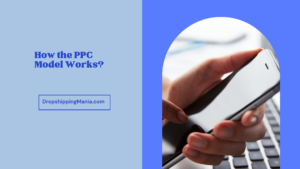
How the PPC Model Works
How Does Pay-Per-Click Advertising Work?
PPC as a marketing channel covers a number of different ad platforms, its most important and common ads is Bing ads or Google ads.
These platforms are different ad formats are given below:
- Search Ads
- Gmail Ads
- Display Ads
- Video Ads
- Shopping Ads
It is the simple reason that it gives access to the largest audience of potential clients and customers, and also number of different ways to set up and run movements depending on your goals. But regardless of the platform and ad format. The work of the PPC is not largely change and it is a very easy process.
- Sign up to an advertising account with the platform.
- Create ads (and select the right aiming by adding keywords or viewers, etc.).
- Set the extreme cost you are ready to pay for each click.
- Your ad goes into an auction with other advertisers who are bidding on the same keywords.
- The auction controls the order in which the ads are exposed.
- You pay when someone clicks your ad.
It is very straightforward and simple to grip this, and different format of ads (and other bidding strategies that can be used, as an example), the main principles remain.

How Does Pay-Per-Click Advertising Work
How to do Effective PPC Keyword Research?
Pay Per Click keyword research is very difficult and time consuming, but it is very important. Further, your entire PPC campaign is built about keywords, and the most effective Google Ads promoters nonstop raise and improve their PPC keyword list. If you search keyword only one time, when you create your first campaign, you are maybe missing out on hundreds of thousands of valuable, long-tail, low-cost, and highly related keywords that can be driving traffic to your site.

How to do Effective PPC Keyword Research
You can check our full guide to keyword research here, but in short, an effective PPC keyword list should be:
Relevant: Of course, you don’t want to be paying for clicks that are not going to change. That means the keywords you offer on should be closely connected to the donations you sell.
Exhaustive: Your keyword research should include not only the most popular and frequently searched terms in your niche, but long-tail keywords. These are more specific and less common, but they add up to account for the popular of search-driven traffic. In addition, they are less competitive, and therefore less expensive.
Expansive: PPC is iterative. You want to continually improve and expand your campaigns, and create an atmosphere in which your keyword list is continuously rising and adapting.
If you want to find high-volume, industry-specific keywords to use in your PPC campaigns, be sure to check out our Free Keyword Tool.
Managing your PPC Campaigns?
Once you have built your new campaign, you need to manage them in daily basis to make sure they continue to be effective. If you active your account in regular bases then you have more chance to success your account. You cannot run your account on regular basis then there are no chance to success. You should see the performance of your account and making the following changes to improve your campaigns.
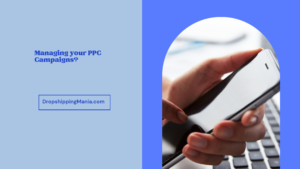
Managing your PPC Campaigns
Continuously add PPC keywords: Increase the reach of your PPC campaigns by adding keywords that are applicable to your business.
Add negative keywords: Add non-converting terms as negative keywords to improve campaign relevancy and reduce wasted spend.
Review costly PPC keywords: Review expensive, under-performing keywords and shut them off if essential.
Refine landing pages: Adjust the content and CTAs of your landing pages to align with individual search queries in order to boost conversion rates. Don’t send all your traffic to the same page.
Split ad groups: Improve click-through rate (CTR) and Quality Score by splitting up your ad groups into smaller, more applicable ad groups, which help you create more targeted ad text and landing pages.
Benefit of Pay Per Clicks?
Here are some important points of PPC are given below:
PPC ads are cost-effective:
You have complete control over how much you are willing to spend with PPC ad campaigns, you can pay when visitor click your link and land on your website with a high chance of conversion you will get your money value.

PPC ads are cost-effective:
PPC ads produce fast results:
There is vey difficult to top of the first page it will be taken many months to top of the first page of SERP. Although, organic ranking is very great. If you have your own small business or startup your business. You don’t have to time to wait the organic, social or direct traffic. You can shoot yourself to the top of the SERP within hours of launching your campaign with optimized PPC ads.
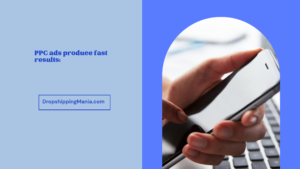
PPC ads produce fast results:
You can easily control and test PPC ads:
It is very easy to control the keywords you are ad placement, targeting or budget with PPC ads. You can also run divided tests with different ads to recognize the one that produces the highest return on investment. If you can run good ads do well until it no longer produces desirable results.
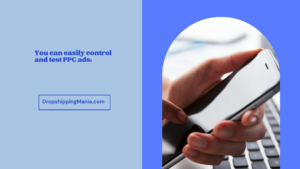
You can easily control and test PPC ads:
PPC ads allow you to target your ideal customers:
However, you can buy your product and services that skip the right past cold viewers to target a deep audience. You can offer on your keywords that solution aware persons would search for online. Aside from keywords, PPC ads also offer aiming options like past online activity or demographics. There is a one more excellent use for PPC ads is to create retargeting campaigns targeting visitors who land on your website but did not purchase.

PPC ads allow you to target your ideal customers:
PPC ads help you rank even with low domain ratings:
Keywords have become gradually modest; it is very difficult to top of the ranking of search engine with low domain authority in front of larger audience on social platform. Moreover, that’s why keyword is very important to the top of the ranking on search engine rank. You can quickly rank for keywords your audience is searching, irrespective of your domain ratings with PPC advertising.
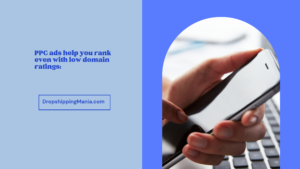
PPC ads help you rank even with low domain ratings:
Data from PPC ads can improve your SEO strategy:
Your paid advertising should accompaniment your SEO strategy in its place of replacing it. You should not drain all your search engine optimization (SEO) efforts overall. When people search for your keywords, you know their search intent and can show the most applicable ad to your audience. This means more clicks and a greater chance of conversion. Laura Mitelman, Paid Acquisition at HubSpot.

Data from PPC ads can improve your SEO strategy:
How to Optimize Your Pay-Per-Click Ads?
Pay-per-click marketing can be a very cost-effective way to drive traffic to your website and grow your business. But it takes time and effort to do it right.
A number of factors can affect your PPC costs, including:
The relevance of the keywords you choose to bid on: Are they the search relations your best spectators is really using to find products they want to buy, or solutions to their problems?
The quality of your ads and landing pages: Google awards the best ad assignments and the lowest costs to businesses that provide a good consumer skill. Further, your click through rate, or CTR, is a good sign of whether or not your ad original is resonating with people.
A solid account structure: Your PPC account is like a house. Everything needs to be built on a strong basis. Learn more about effective account structure in this guide.
There is a lot to think about when it comes to keeping your PPC ads and campaigns in top shape. Check out PPC University if you are ready to learn more about how it all works.

How to Optimize Your Pay-Per-Click Ads
How to Launch A PPC Campaign?
Here are the fundamental steps that you should take to create a PPC campaign. Some are easier than others, but all are important if you want to get the most out of Google Ads.

How to Launch A PPC Campaign
1. Set Your Objectives:
Without an end goal, your plan has no direction. Start off by clarifying what it is you want to achieve with this advertising campaign. Do you want more site visitors? More email subscribers? More customers? Define your business objectives before going any further.

1. Set Your Objectives:
2. Determine the Budget:
Paying for every click can quickly add up, so you need to be prepared. Unless you have the luxury of a massive budget, you must always seek to optimize your campaign to avoid wasted spend. Consider your industry, your competitors, and the keywords when setting your budget.

2. Determine the Budget:
3. Define Your Target Audience:
Who are you selling to? Do you understand their needs and pain points? With multiple campaigns, you can target various audience segments. For example, you could advertise male and female products separately.
However, both will fail spectacularly if you don’t know your market. Start off by creating detailed buyer personas, which help guide your marketing efforts. By digging deep in social media platforms, niche groups, and forums, you can discover more about the people you want to serve, and then refine these personas to gain a clearer perspective of your target audience.

3. Define Your Target Audience:
4. Identify Valuable Keywords:
For your campaign to succeed, you need to pick relevant keywords that relate to your business, and also to the needs of your target audience. Imagine you are one of them – what search terms are they using to find the solutions you offer?

4. Identify Valuable Keywords:
5. Narrow the Field with Negative Keywords:
Instead of wasting money on irrelevant clicks, stay vigilant by adding negative keywords to your campaign. This will filter out any unqualified leads who use similar, yet unrelated search terms, so that your ad is only displayed to people who may actually buy from you.

5. Narrow the Field with Negative Keywords:
6. Learn from Competitors:
No company operates in a vacuum. Rather than ignoring your competition, try to learn from them. With an in-depth competitor analysis, you can glean insights that help you improve your own strategies and methods.
Once you have a better understanding of their ads, landing pages, keywords, offers etc., you will find ways to streamline your conversion funnel.

6. Learn from Competitors:
7. Determine Device Bids:
While most people are already shopping on their mobiles, many still prefer to use desktop. Quite often, people browse on mobile, but complete purchases on a desktop or tablet device.
Further, you can adjust your bids are the campaign level, or at the ad group level if you want to adjust each device bid individually. Knowing your audience will help you with these decisions.

7. Determine Device Bids:
8. Identify the Right Reporting Tool:
Paid advertising is never a ‘set and forget’ task. You should keep a close eye on all your campaigns and analyze the key metrics to determine if your ads are successful.
Moreover, PPCexpo offers an automated analytics and reporting suite for novices and experts, agencies and digital marketers, and most importantly, business owners. There is no configuration required, allowing you to get stuck in with our ready-to-use interactive reports. Save your time and effort by checking out the PPCexpo reports today.

8. Identify the Right Reporting Tool:
Why PPC is Important?
PPC means is pay per click, who is the part of digital market, it is that place where company can pay a fee for each time someone clicks on one of their ads. A higher budget will make you end result better and also quicker. The brand awareness through PPC is very faster and also easy, while your SEO plan works on rising your website ranking naturally.

Why PPC is Important
Other Ad Networks?
Google ads and Bing ads are not only these networks to make money through ads, there are also other networks which you can use ads and make money.
Here are some included:
- Ad Blade
- LinkedIn Ads
- Twitter Ads
- Amazon Ads
- Ad Recover
- Bederites
- RevContent
- AdRoll
- Facebook Ads
- Buy Sell Ads
- com
For the most part, we will mostly be covering Google Ads and Bing Ads. If you are looking to increase on these popular stages, the options listed above are value looking into (social ads are often seen within their own channel, separate to search engine PPC).
If you want to need information about Upwork then visit this link
UPWORK

Other Ad Networks


